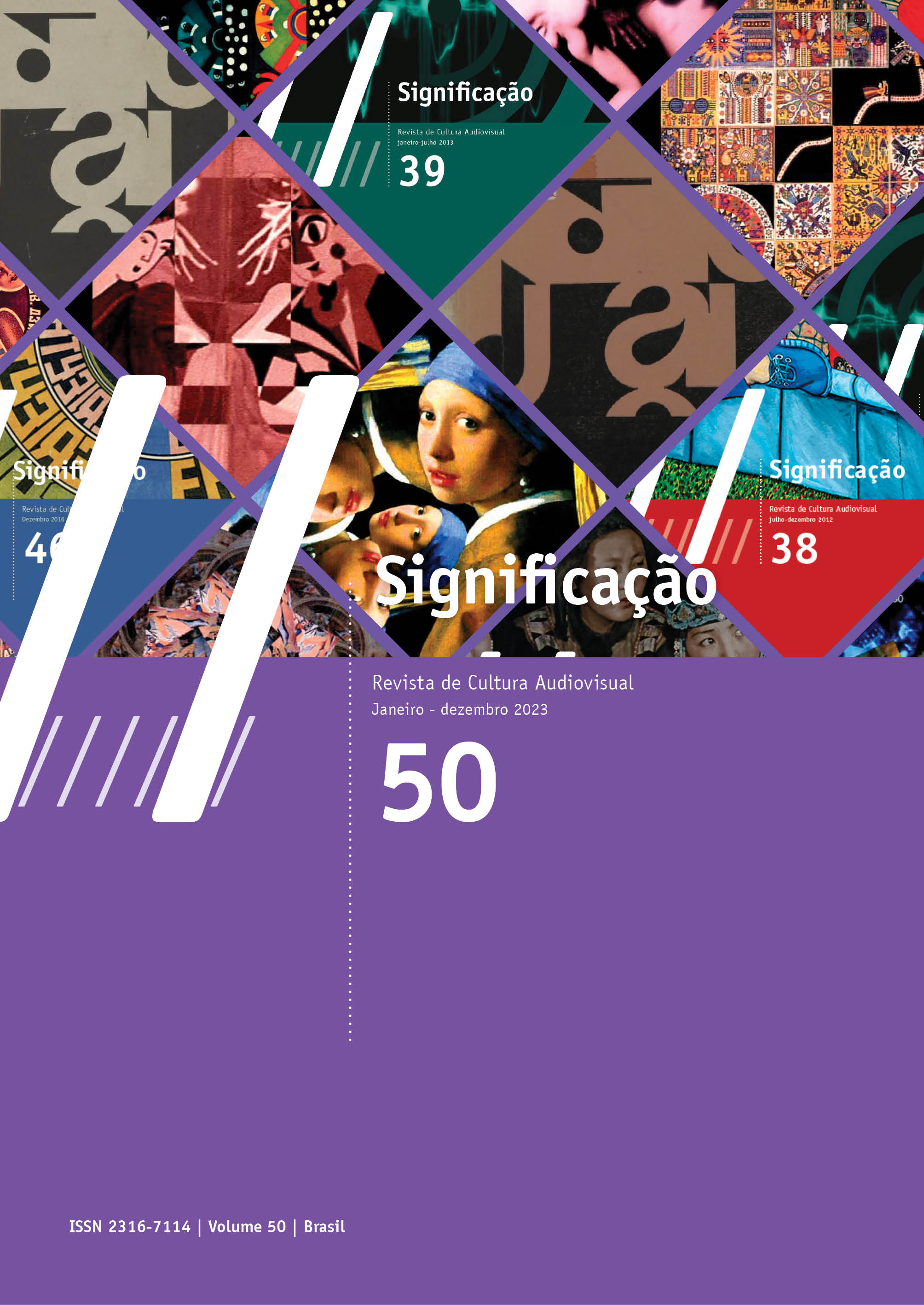The cinema of Rithy Panh: everything has a soul
DOI:
https://doi.org/10.11606/issn.2316-7114.sig.2022.205374Keywords:
Cambodia, Rithy Panh, Documentary, Genocide, ExileAbstract
Over four decades of making films, director Rithy Panh continues to expand the possibilities of documentary filmmaking. His traumatic experiences of the Khmer Rouge’s dehumanising regime drive the creative impulse that makes him Cambodia’s most famous director. This interdisciplinary collection elaborates upon the global geopolitical concerns such as migration, exile, imperialism, and gender that Panh astutely implicates within the specificities of Cambodian history. Not only does Panh expose the role cinema plays in reifying structures of oppression, he also shows how it might also produce a measure of redemption.
Downloads
References
BARNES, L.; MAI, J. The Cinema of Rithy Panh: Everything Has a Soul. New Brunswick: Rutgers University Press, 2021.
BENZAQUEN-GAUTIER, S; KLEINEN, J. “Archiving the Perpetrator”. In: BARNES, L.; MAI, J. (orgs.). The Cinema of Rithy Panh: Everything Has a Soul. New Brunswick: Rutgers University Press, 2021. p. 117-130.
CAZENAVE, J. “Rithy Panh as Chasseur d’images”. In: BARNES, L.; MAI, J. (orgs.). The Cinema of Rithy Panh: Everything Has a Soul. New Brunswick: Rutgers University Press, 2021. p. 72-85.
FRENCH, L. “Looking Back and Projecting Forward from Site 2”. In: BARNES, L.; MAI, J. (orgs.). The Cinema of Rithy Panh: Everything Has a Soul. New Brunswick: Rutgers University Press, 2021. p. 161-172.
LAROCCA, D. “Memory Translation: Rithy Panh’s Provocations to the Primacy and Virtues of the Documentary Sound/Image Index”. In: BARNES, L.; MAI, J. (orgs.). The Cinema of Rithy Panh: Everything Has a Soul. New Brunswick: Rutgers University Press, 2021. p. 188-201.
LY, B. “The “Mad Mother” in Rithy Panh’s Films”. In: BARNES, L.; MAI, J. (orgs.). The Cinema of Rithy Panh: Everything Has a Soul. New Brunswick: Rutgers University Press, 2021. p. 17-31.
MAI, J. “Resilience in the Ruins: Artistic Practice in Rithy Panh’s The Burnt Theater”. In: BARNES, L.; MAI, J. (orgs.). The Cinema of Rithy Panh: Everything Has a Soul. New Brunswick: Rutgers University Press, 2021. p. 32-45.
MORAG, R. “Rithy Panh, Jean Améry, and the Paradigm of Moral Resentment”. In: BARNES, L.; MAI, J. (orgs.). The Cinema of Rithy Panh: Everything Has a Soul. New Brunswick: Rutgers University Press, 2021. p. 144-158.
PHAY, S. “Rithy Panh: Storyteller of the Extreme”. In: BARNES, L.; MAI, J. (orgs.). The Cinema of Rithy Panh: Everything Has a Soul. New Brunswick: Rutgers University Press, 2021. p. 202-214.
SÁNCHEZ-BIOSCA, V. “Bophana’s Image and Narrative: Tragedy, Accusatory Gaze, and Hidden Treasure” In: BARNES, L.; MAI, J. (orgs.). The Cinema of Rithy Panh: Everything Has a Soul. New Brunswick: Rutgers University Press, 2021. p. 173-187.
UM, K. The Wounds of Memory: Poetics, Pain, and Possibilities in Rithy Panh’s Exile and Que la barque se brise. In: BARNES, L.; MAI, J. (orgs.). The Cinema of Rithy Panh: Everything Has a Soul. New Brunswick: Rutgers University Press, 2021. p. 46-58.
Downloads
Published
Issue
Section
License
Copyright (c) 2023 Andrew Philip

This work is licensed under a Creative Commons Attribution-NonCommercial 4.0 International License.
Authors who publish in this journal must agree with the following terms:
- Authors keep their copyrights and grant the journal first time publication rights, having their articles simultaneously licensed under the Creative Commons Attribution License, which allows sharing texts with authorship recognition and first publication on this journal for non-commercial purposes.
- Authors are allowed to make additional contracts, for a non-exclusive distribution of the article’s version published on this journal (e.g.: publishing in institutional repositories of articles or as a book chapter), with authorship recognition and first publication on this journal.



















